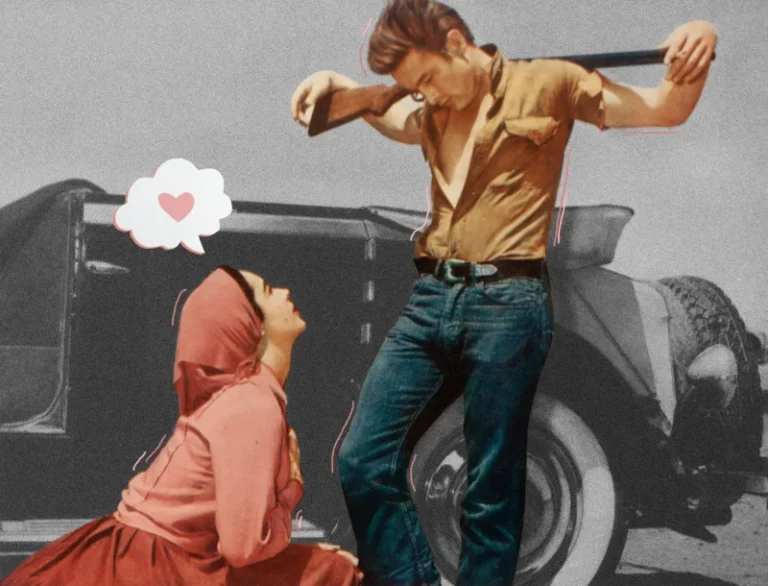The Black Pill: New Technology and the Male Supremacy of Involuntarily Celibate Men
The online community of involuntarily celibate men (incels) offers explanations for their inability to find sexual partners that reinforce problematic gender stereotypes. This blog post analyzes comments from a popular incel forum, finding that incels blame emerging technologies like dating apps and social media for exacerbating gender inequalities that prevent them from having relationships. However, their focus on technology excuses misogyny and essentialist views of gender. The post applies Connell’s theory of masculinities to argue that despite seeing themselves as subordinate, incels orient towards upholding male dominance.
How Incels View Dating Apps
2.1. Accelerating Hypergamy
Incels believe dating apps like Tinder enable women to “trade up” for more desirable mates through hypergamy. They think apps provide women access to many potential partners, allowing even less attractive women to date very attractive “Chad” men rather than their true “looksmatch.” For example, incels say average women now reject average men to hold out for Chads who are 9s or 10s in attractiveness. Dating apps also facilitate status-based hypergamy, with incels arguing average women use the apps to date both handsome and successful men rather than “settle” for someone like an incel.
2.2. Enabling Highly Desirable Men to Have Multiple Partners
Along with hypergamy, incels say apps give women access to Chads who can monopolize romantic options. Incels feel they cannot compete with these tall, muscular, square-jawed Chads. They argue apps let Chads date multiple women simultaneously while average men have no partners. For example, incels claim “Every girl wants Chad. And chads are like 1/10,000 [of men].” To them, apps mean women share top men rather than accepting an average man. Incels admire Chads and mainly criticize women’s choices. They think apps should provide fair sexual access for men, not that male dominance or entitlement to women’s bodies is the issue.
How Involuntarily Celibate Men View Social Media
3.1. Inflating Women’s Egos and Sexual Marketplace Value
Incels argue that “beta” men use social media to excessively compliment women, inflating women’s egos and perceptions of their own desirability. They call this “orbiting” – beta men constantly praising women on Instagram and other platforms in hopes of dating them. But incels view orbiting as a pointless manipulation tactic that betrays other men by driving up women’s sense of their sexual “marketplace value.” For example, one incel said, “Every woman is a celebrity with Instagram…a 2/10 foid gets much more sexual interest than a 10/10 did from the 1990s.”
3.2. Subordinate Men Boosting Women’s Egos Through Likes/Comments
Incels criticize these “beta” men for showering women with compliments online. They see it as setting unreasonable expectations that women deserve commitment from the most attractive alpha men. As one incel wrote, “There are high beauty standards for men [from women], and women choose to just go on Tinder, or whatever, to have one-night stands [with Chads]… Because they don’t want an average or below average looking guy.”
Analysis
4.1. Incels’ Focus on Technology Promotes Essentialist Gender Roles
Despite identifying as low status beta males, incels reinforce rigid, essentialist notions of gender in their technological arguments. They portray women as innately hypergamous, calculating, manipulative, and obsessed solely with maximizing attention and sexual access to the most attractive alpha men. Women are depicted as constantly seeking to “trade up” their male partners.
Similarly, incels posit an unchanging masculine hierarchy where the most physically dominant and handsome men are admired, while incels themselves are doomed to rejection and subjugation. There is no flexibility in the gender roles – men are either alpha Chads that women fawn over or hopeless, inferior incels. Technology simply reveals these “truths” about unchanging gender essences. With dating apps, even unattractive women can leverage their hypergamy to land an alpha male. On social media, women exploit beta orbiters to inflate their own egos. The incel worldview allows no possibility that relationships are mutually fulfilling partnerships between complex individuals.
4.2. Reinforces Male Domination Over Women
This essentialist discourse serves to reinforce male entitlement and domination over women’s bodies. Incels’ anger fundamentally stems from the feeling that they are owed sexual access to women’s bodies but are being unfairly denied and excluded from this patriarchal “right.” However, incels do not seek to transform patriarchal gender relations or notions of masculinity. Rather, they want to fully participate in this system of female objectification and male control.
Women are framed explicitly as commodities to be assessed in terms of attractiveness, rather than human beings. Any agency or autonomy women display in selecting partners then represents a threat to the “correct” functioning of gender relations as incels see it. Technology has supposedly granted women this agency, but incels respond with renewed efforts to quantify, denigrate, and control women.
Discussion
5.1. Relation to Theories of Masculinity
The incel worldview resonates with Connell’s concept of hegemonic masculinity, despite the fact that incels occupy a socially subordinate position in the contemporary masculine hierarchy. Although largely unable to enact hegemonic masculinity in terms of exerting dominance over women, incels firmly uphold the patriarchal dividend and the notion that men’s worth is inherently tied to successfully objectifying and sexually conquering women. In the face of diminishing patriarchal returns, incels have doubled down on endorsing male supremacy rather than re-examining their essentialist notions of masculinity and relationships.
5.2. Impacts of Technology on Gender Relations
At the same time, incels do perceive that new technologies like dating apps and social media have genuinely impacted gender relations by expanding women’s options for dating and relationships. Many men face similar challenges in establishing relationships without descending into misogynistic beliefs. However, incels place the blame solely on women’s choices and flawed external forces of technology and society, rather than examining how their own constructs of masculinity tie self-worth to problematic notions of sexual conquest.
Involuntary Celibates and the “Manosphere”
6.1. History and Changing Nature of Incel Communities
The term “incel” originated in the 1990s from a woman named Alana who started a website for people of all genders struggling with involuntary celibacy. However, the community gradually became dominated by heterosexual men exhibiting misogyny. Early incel websites focused on providing support for shy men aiming to begin dating. But sites like the subreddit r/Incels promoted increasingly extreme anti-feminist views and violence against women before being banned. While some incels genuinely seek social support, current forums contain prolific misogyny and dehumanizing language like “femoids.” Incels have committed murder and mass violence targeting women. Hence, “incel” now commonly refers to a heterosexual male unable to find sexual partners who harbors resentment towards women and society for this failure.
6.2. Differences Between Incels and Other Manosphere Groups
Incels are part of the larger online “manosphere” which includes pickup artists, men’s rights activists, and MGTOW (“men going their own way”). These groups share misogynistic views and a belief that feminism has undermined men. However, incels stand out with their intense self-loathing, defeatism regarding dating, and focus on male physical attractiveness determining worth. Groups like pickup artists aim to improve sexual success with seduction techniques. But incels have given up, accepting the “black pill” that genetics doom “ugly” men to eternal rejection. Still, these groups share an opposition to women’s empowerment and gender equality.
Masculinity and Online Communities
7.1 Use of Connell’s Theory of Masculinities
Connell’s concept of hegemonic masculinity—which values male domination, heterosexual prowess, and female subordination—is highly relevant to incels. Despite seeing themselves as subordinate “betas,” incels admire the most dominant, attractive men. Their anger stems from feeling entitled to participate in hegemonic masculinity but being denied. However, it is unclear whether incels represent a failure of hegemonic masculinity, or whether “hybrid masculinities” that incorporate tactical elements of tolerance are now more culturally dominant. The rigid gender essentialism of incels contrasts with the strategic flexibility of hybrid masculine performances.
7.2 Applicability of Hybrid Masculinity Concept
The concept of hybrid masculinity may better capture how dominant men today mix tolerance with persistent sexism, rather than fully adopting incels’ regressive stances. Men use terms like “virgin” or “incel” as insults to police masculinity. So dominant men may be distancing themselves from the elements of the manosphere like incels to appear progressive, while still pursuing sexual conquests. The very existence of incels as a cautionary tale upholds the connection between masculinity and sexual success. Further research could explore how hybrid masculine performances are defined in opposition to incels’ views to uphold modern patriarchal privilege.
Conclusion
8.1. Summary of Main Points
In summary, this analysis of an incel forum found that incels blame emerging technologies like dating apps and social media for exacerbating gender inequality and female hypergamy, preventing them from finding sexual partners. However, their selective focus on technology serves to excuse misogyny, reinforce essentialist gender stereotypes, uphold male sexual entitlement over women’s bodies, and ignore the underlying flaws in constructs of masculinity. Despite identifying as low status “beta” males, incels orient towards patriarchal ideals of masculine worth based on sexual conquest. Their discussions of technology expose highly regressive views of women as manipulative, hypergamous objects.
8.2. Implications of Incel Views and Rhetoric
The implications are deeply concerning given incels’ real world violence. But dismissing incels as extremists ignores how their responses to social struggles reveal broader flaws in dominant masculine socialization. Their rigid gender essentialism contrasts with more tactically flexible hybrid masculinities that retain sexism while incorporating tolerance. Further research could explore how hybrid masculine performances are defined partly through contrast to the elements of the manosphere like incels. But preventing violence means critically examining how masculine worth remains tied to sexual success in modern society.
Sources:
FAQ
-
What are some key examples of how incels blame technology for their lack of relationships?
Incels argue dating apps enable hypergamy by letting women access tons of potential partners and trade up. They also say apps give the most attractive men (Chads) exclusive access to women. Regarding social media, incels claim it lets average men artificially inflate women’s self-perceived desirability through excessive compliments.
-
Don’t incels have a point that dating apps have changed dating in ways that can be challenging?
In some ways yes – apps introduce certain biases, and many men struggle to get matches. But incels take this to the extreme by demanding access to women’s bodies, rather than seeking mutual partnerships. The problems are not solely due to technology.
-
How do incels exemplify concepts like hegemonic masculinity and the manosphere?
Despite identifying as losers in the masculine hierarchy, incels firmly uphold the ideals of hegemonic masculinity, which values male domination and sexual conquest. Though unable to enact it, incels feel entitled to participate in systems of male power over women. They are part of the broader misogynistic online manosphere.
-
What are some differences between incels and other manosphere groups?
Unlike pickup artists aiming to improve seduction skills, incels have completely given up on dating through their “black pill” philosophy. But unlike men’s rights groups, incels blame themselves rather than just women. However, these groups all oppose gender equality.
-
What are some solutions to the dangerous attitudes among incels?
We must critically examine how masculine socialization still ties male worth to sexual success. And dominant men may need to stop using “virgin” or “incel” as insulting labels that police masculinity standards. Improving men’s mental health support can help. But ultimately, promoting gender equality and human dignity are essential.

